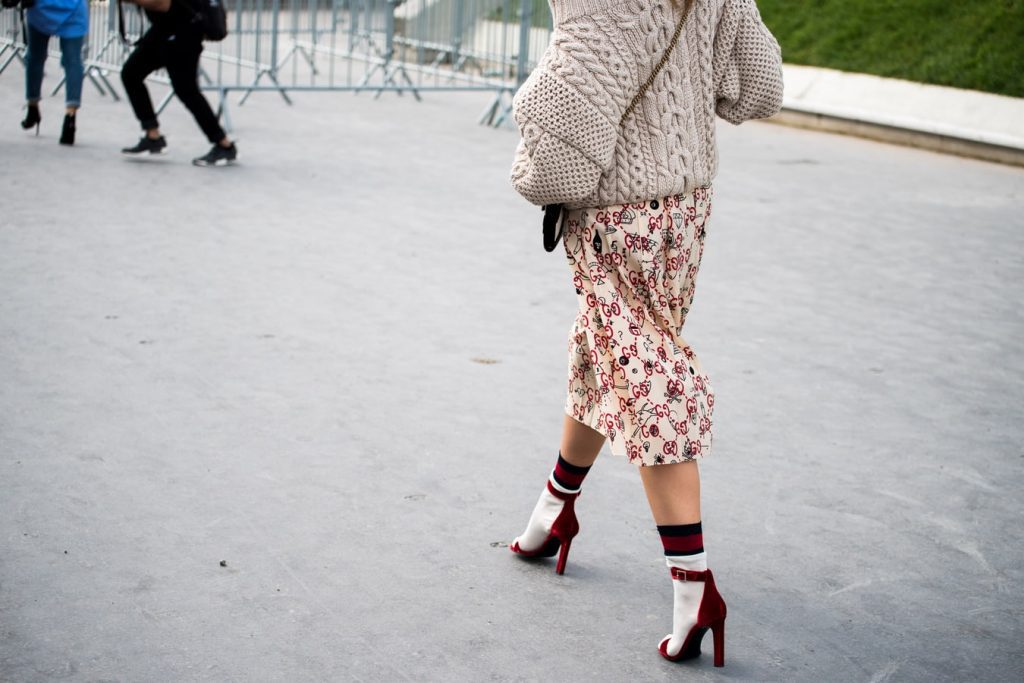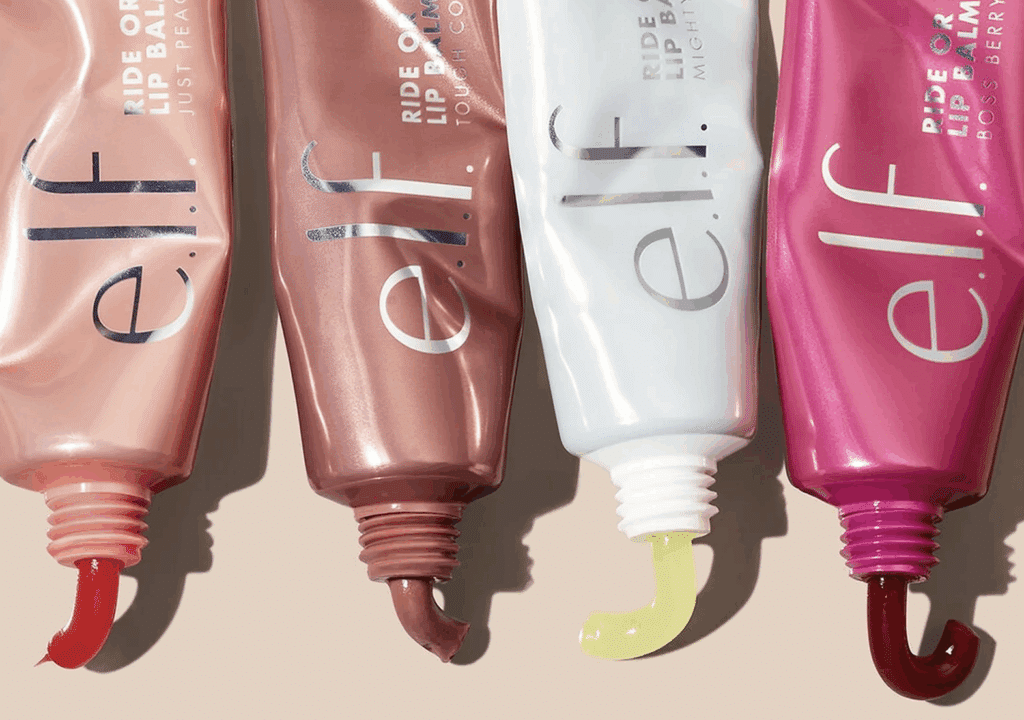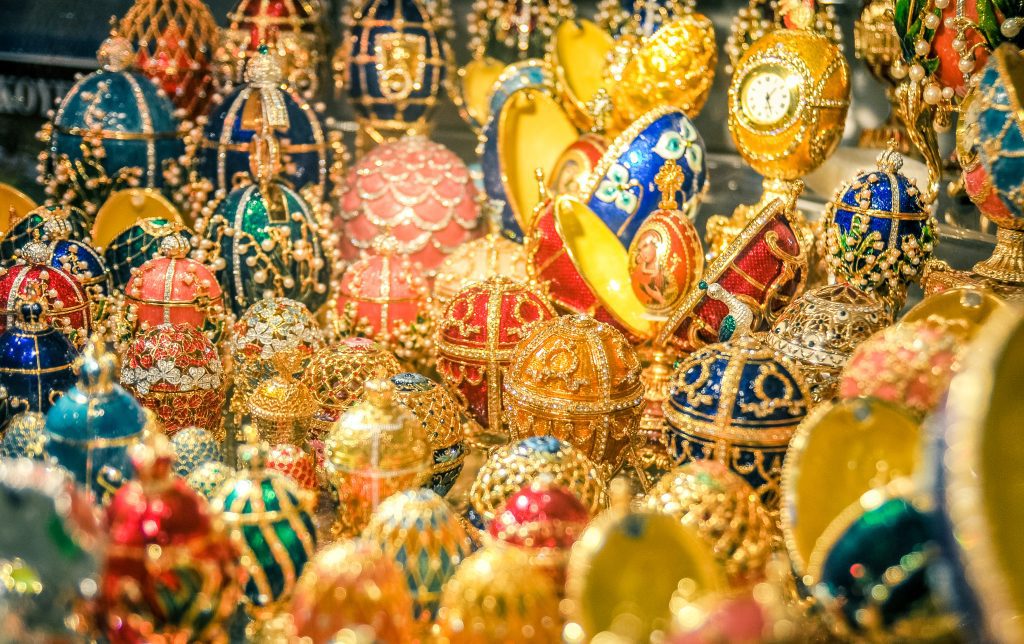Despite reports to the contrary, including from the New York Times and the United Kingdom’s Telegraph last week, the Italian government stated that it did not seek exemptions to sanctions on Russia for certain sectors. Italian Prime Minister Mario Draghi confirmed on Friday that Italy is “fully aligned” with its European partners and intends to issue a “very tough package of sanctions against Russia,” one that does not include carve-outs for things like Italian-made luxury goods, which accounted for no negligible portion of the more than 20 billion euros of trade that took place between Russia and Italy during 2021.
The Italian Prime Minister’s announcement comes after European Union leaders struggled to unite due to concerns about how the sanctions would impact their own economies. “Big spenders in Russia are fans of the made-in-Italy brand, and they are an important part of the Italian luxury goods sector’s customer base,” Fortune reported on Friday, citing local Italian media. With that in mind, many Western European entities – and their governments – have faced “uncomfortable questions about just how willing they are to cut off the flow of Russian cash.” Such trepidation has only been compounded by the fact that many countries, including Italy and Germany, are reliant on Russian gas exports, with almost 40 percent of Europe’s natural gas being supplied by Russia.

Against that background, EU leaders were criticized for reportedly seeking carve-outs for valuable exports and initially blocking some of the toughest proposed sanctions, including a plan to cut Russia off from the Society for Worldwide Interbank Financial Telecommunication (“SWIFT”) international payments system, which enables banks and other financial institutions to transfer money among one another.
Waves of Sanctions from the EU
As of February 26, the EU had adopted more than one package of measures to respond to the decision by the Russian Federation to launch an “unprecedented and unprovoked military attack against Ukraine.” The 27-member European bloc stated that the restrictive measures that it has put into place – which include a freeze on governmental and bank borrowing, a bar against tech imports and an asset freeze and a prohibition from making funds available to certain listed individuals and entities – are designed “to cripple the Kremlin’s ability to finance the war, impose clear economic and political costs on Russia’s political elite responsible for the invasion and diminish [Russia’s] economic base.”
To date, sanctions blocking the import of hot-selling Italian luxury goods, such as those form the likes of Gucci, Prada and Versace, into Russia have not been implemented by the European Union. However, the EU, along with the U.S. and other allies, announced that they will, in fact, block certain Russian institutions’ access to SWIFT, which could have an indirect effect on Western companies and banks in addition to proving capable of isolating Russia when it comes to international trade.
A significant move, the exclusion of key Russian banks from the SWIFT system, such as Sberbank and VTB Group, which account for about half of the country’s banking assets, will prevent them from communicating with financial institutions outside of Russia. That would, in turn, stand in the way of Russian institutions quickly and easily transferring funds, including for (but certainly not limited to) imported goods, which its economy depends upon. Reflecting on the impending partial block of Russian banks from SWIFT, former deputy chairman of the Russian central bank Sergey Aleksashenko told Reuters that it will be “the end of a significant part of the economy,” noting that imported goods – and thus, “half the consumer market – is going to disappear if payments cannot be made for them.”
Russian Sanctions From the U.S.
Meanwhile, the U.S. has put at least two waves of sanctions into effect as of this weekend – from restrictions on tech exports to the block of certain Russian banks’ access to SWIFT. Additional tranches of sanctions from the U.S. are expected, with Washington reportedly exploring whether to bring cryptocurrencies into the fold. (Given the newly-announced SWIFT-centric sanctions, Russian could begin to rely more heavily on crypto (and other versions of the SWIFT system), which already makes up a “greater part of Russia’s financial system than most other nations due to a distrust in its banking system,” according to the Wall Street Journal.)
Targeting Russia’s access to cryptocurrencies, such as Bitcoin and Ether, “would take sanctions policy into uncharted territory,” the WSJ reported on Saturday, noting, however, that blocking such transactions “would be challenging, since by nature private, digital currencies are designed to exist without borders and for the most part outside the government-regulated financial system.”
While some of the U.S. sanctions are not slated to go into effect until March 26, 2022, thereby, allowing U.S. companies to “wind up” their Russian business, others have immediate effect.” Such present and impending sanctions are expected to impact domestic companies’ abilities “to do business with some existing business partners, to negotiate payment terms with Russian entities, and to transfer payments to and from the Russian Federation,” according to Herbert Smith Freehills LLP attorneys Susannah Cogman, Daniel Hudson, Elizabeth Head, and Rebecca Critchley.
They encourage companies to: (1) Implement daily screenings of all Russian business partners against the Consolidated Screening List; (2) immediately suspend all non-critical shipments and payments to Russia; (3) reach out to trade counsel to evaluate whether transactions are permissible to the extent you have critical shipments or payments pending or upcoming; and (4) avoid entering into any new business arrangements with Russian individuals or entities without the advice of trade counsel.
Lowenstein Sandler LLP’s Doreen Edelman, Zarema Jaramillo, Abbey Baker and Christian Contardo echo such sentiments, stating that companies doing business in or with Russia or Russian companies should “carefully assess the impact of the new sanctions on their operations and activities and review their compliance procedures.” This includes “ensuring that any customers, suppliers, agents, distributors, or other third parties located in or with ties to Russia and Ukraine are screened against all applicable sanction lists and establishing necessary procedures to avoid potential violations of the US and other sanctions arising from this conflict.”
They note that “U.S. persons wherever located and non-U.S. persons located in the United States are prohibited from engaging in virtually any transaction or other activity” involving individuals or entities on the U.S. Department of the Treasury’s Office of Foreign Assets Control (“OFAC”)’s Specially Designated Nationals and Blocked Persons List without authorization from the OFAC, with civil penalties for violations capable of exceeding $300,000 per individual transaction, and criminal penalties reaching $1,000,000 and/or 20 years in prison per violation in the cases of intentional violations.














